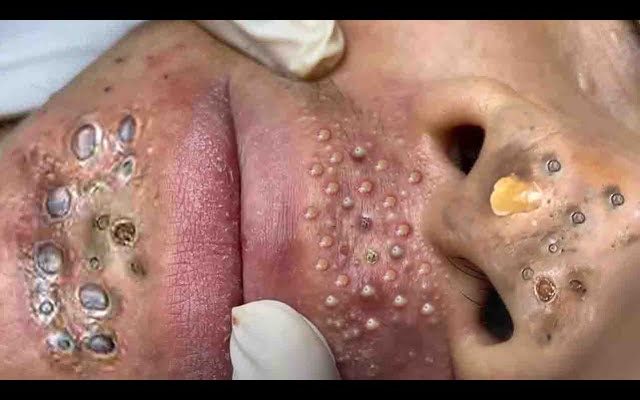It sounds like you’re interested in the extraction of blackheads, particularly in the context of cystic acne. Here’s an overview of how these two issues relate, and some methods that can be used to address blackheads, especially in cases where cystic acne is involved:
Understanding Cystic Acne and Blackheads:
- Cystic Acne: This is a more severe form of acne that involves large, painful cysts deep under the skin. It is typically caused by hormonal imbalances, bacteria, excess oil production, and clogged pores.
- Blackheads: These are a form of non-inflammatory acne where hair follicles become clogged with oil, dead skin cells, and debris. When the top of the pore is open, the contents oxidize and turn dark, giving them their characteristic “black” appearance.
Extraction of Blackheads:
When dealing with blackheads, extraction is sometimes used as a treatment. However, in the case of cystic acne, it is generally not advisable to attempt extracting blackheads manually, as it can exacerbate the acne, lead to scarring, and cause further inflammation. Cystic acne is often more deeply rooted in the skin, and extraction may not effectively address the problem.
Recommended Methods for Managing Blackheads:
- Salicylic Acid: A beta-hydroxy acid (BHA) that penetrates deep into pores, helping to break down the buildup of dead skin cells and oil, making it easier for blackheads to be cleared.
- Retinoids: Prescription or over-the-counter topical treatments that promote cell turnover and help prevent clogged pores.
- Exfoliation: Regular gentle exfoliation (using mild scrubs or chemical exfoliants) can help remove the top layer of dead skin cells, preventing blackheads from forming.
- Face Masks: Clay masks or charcoal masks can help absorb excess oil and unclog pores, reducing the formation of blackheads.
- Professional Extraction: If you want to extract blackheads, it is best done by a dermatologist or esthetician who can use sterile tools to safely remove blackheads without causing damage or infection.
When to Seek Professional Help:
For cystic acne, it’s always best to consult with a dermatologist, as they can prescribe oral medications (like antibiotics, retinoids, or hormone therapy) or recommend professional treatments like chemical peels, extraction under sterile conditions, or laser therapy. These treatments are tailored to reduce the inflammation and prevent further breakouts.
If you’re experiencing blackheads and cystic acne together, it may be important to treat the underlying acne condition first to prevent further clogging of the pores.
Do you want advice on treatments or specific skincare routines to address these concerns?



